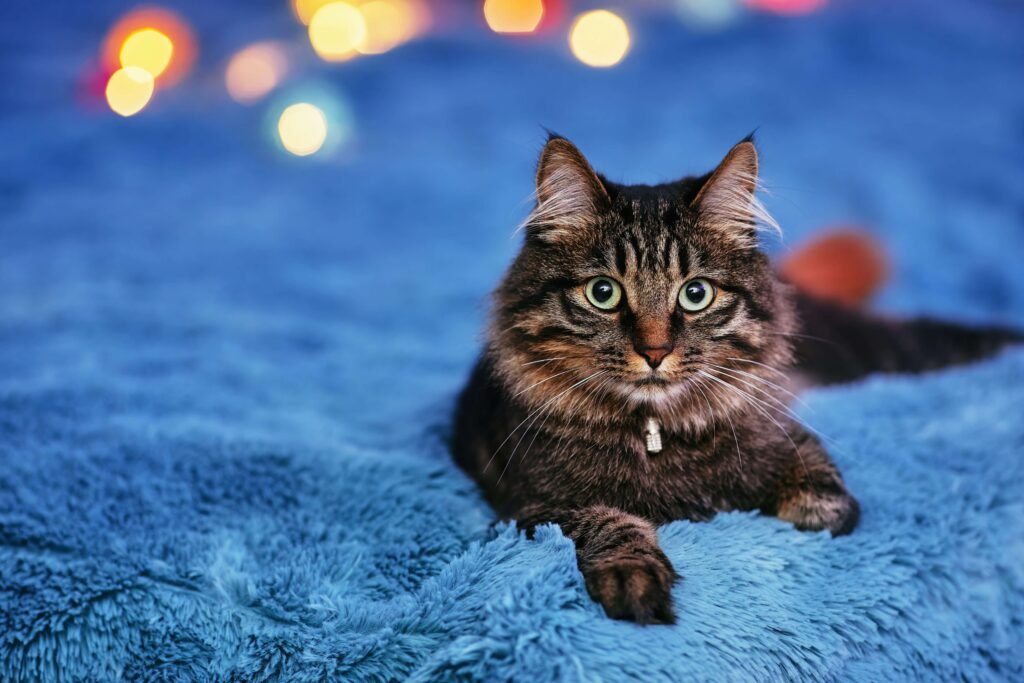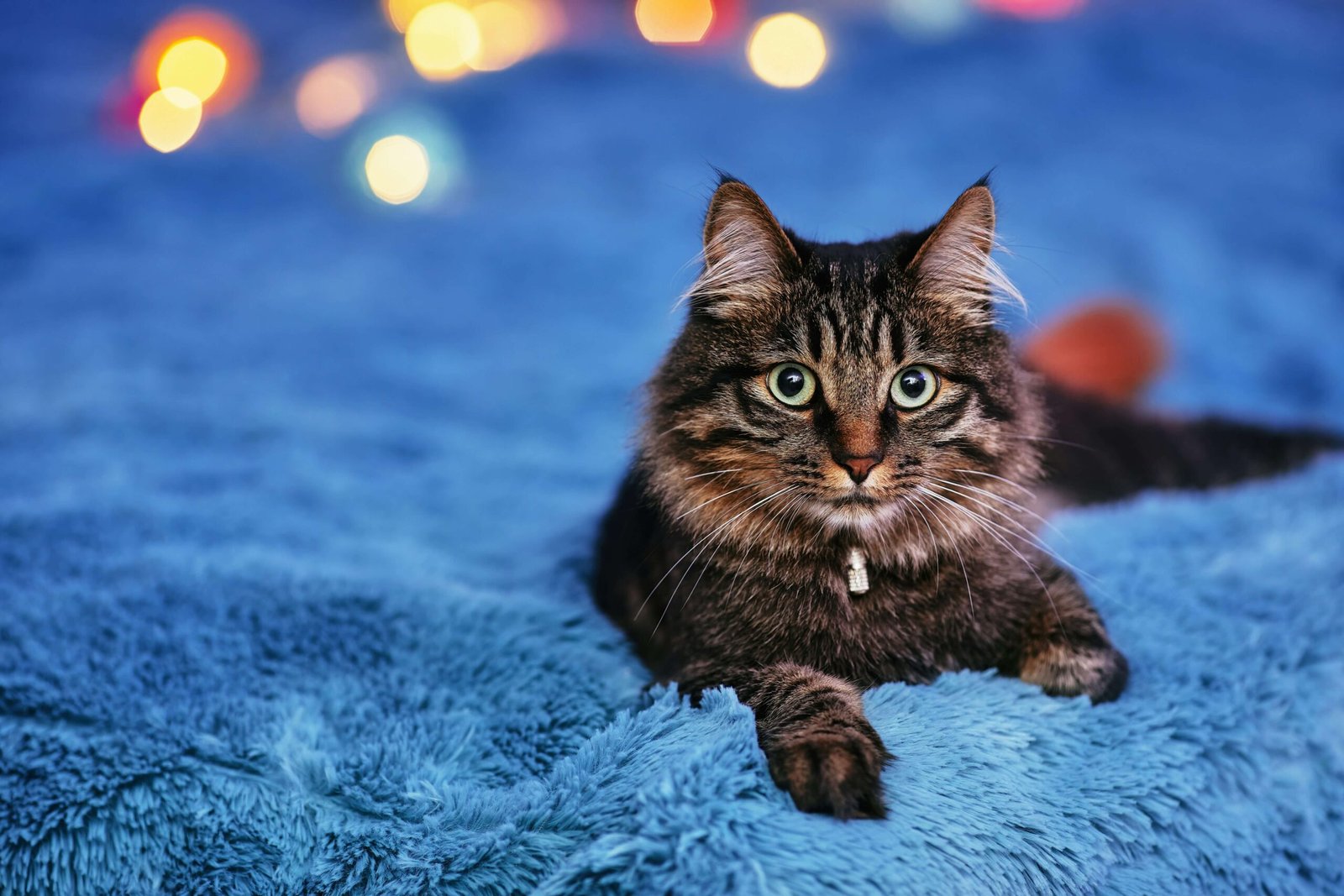Why Does My Cat Sleep on My Pillow? Understanding Feline Behavior
Have you ever woken up to find your cat curled up on your pillow, right where your head should be? While it might seem like an odd choice for a nap spot, this behavior is more common than you think. Cats are fascinating creatures with unique habits, and their preference for your pillow can reveal a lot about their personality, instincts, and bond with you. In this blog post, we’ll explore the reasons behind this adorable yet sometimes puzzling behavior and help you understand what’s going through your feline friend’s mind. Whether you’re a new cat owner or a seasoned pet parent, you’ll gain valuable insights into why your cat chooses your pillow as their favorite snooze spot.
Why Do Cats Love Sleeping on Pillows? Key Reasons
Cats are naturally drawn to soft, elevated spaces, and your pillow ticks all the boxes for comfort and security. But there’s more to it than just convenience. Below are some of the most common reasons why your cat might prefer your pillow over any other spot in the house.
Warmth and Comfort
Your pillow retains heat from your body, making it an inviting spot for your cat. They love warmth and will often seek out cozy places to rest.Familiar Scent
Cats are highly scent-oriented animals. Your pillow smells like you, which provides them with a sense of familiarity and safety.Height Advantage
Cats instinctively prefer higher ground as it allows them to observe their surroundings and feel secure. Your pillow offers a perfect vantage point.Bonding Behavior
Sleeping on your pillow could be your cat’s way of showing affection. It’s a sign that they trust you and want to be close to you.Territorial Instincts
Cats are territorial creatures, and by claiming your pillow, they might be marking it as part of their domain.
In conclusion, your cat’s choice of your pillow as a sleeping spot is influenced by a mix of comfort, instinct, and emotional connection. These factors make it an irresistible location for their daily naps.
What Does Your Cat’s Pillow Preference Say About Their Personality?
Your cat’s decision to sleep on your pillow can also offer clues about their personality and behavior patterns. Here’s what their choice might indicate about them:
Affectionate Nature
If your cat frequently sleeps on your pillow, it could mean they’re particularly affectionate and enjoy being near you.Need for Security
Cats that feel vulnerable or anxious may choose your pillow because it makes them feel safe and protected.Curiosity and Exploration
Some cats are simply curious and enjoy exploring different spots in the house, including your bed and pillow.Dominant Personality
A cat that claims your pillow might have a dominant personality and enjoys asserting their presence in shared spaces.Playful Energy
Younger cats might choose your pillow as part of their playful antics, seeing it as a fun new place to explore.
Understanding these traits can help you better connect with your cat and cater to their individual needs. By observing their behavior, you can strengthen your bond and ensure they feel loved and secure.
Check this guide 👉Why Does My Cat Sleep on Me? Best 7 Behavior Tips!
Check this guide 👉Why Does My Cat Sleep at My Feet? Best 7 Behavior Tips!
Check this guide 👉Cat Sleeping on My Chest: Best 7 Expert Behavior Tips!

Reasons Cats Sleep on Pillows | Benefits for Your Cat |
|---|---|
Warmth and comfort | Helps them relax and stay cozy |
Familiar scent | Provides a sense of security |
Height advantage | Allows them to monitor surroundings |
Bonding behavior | Strengthens their connection with you |
Territorial instincts | Reinforces their sense of ownership |
How Can You Encourage Positive Pillow Behavior? Tips for Cat Owners
If you’re okay with your cat sleeping on your pillow, there are ways to encourage this behavior while maintaining hygiene and comfort. Here are some tips to consider:
Provide Alternatives
Offer a soft, elevated cat bed nearby so your cat has options but still feels close to you.Keep Your Bed Clean
Regularly wash your pillowcases and bedding to minimize allergens and keep your sleeping area fresh.Create a Routine
Encourage your cat to sleep at specific times by establishing a consistent bedtime routine.Use Positive Reinforcement
Reward your cat with treats or praise when they use their designated sleeping spot.Respect Their Preferences
If your cat insists on your pillow, embrace it as a sign of their affection and trust.
By implementing these strategies, you can foster a harmonious sleeping arrangement that works for both you and your feline companion.
Potential Downsides of Cats Sleeping on Your Pillow
While it’s heartwarming to have your cat snuggle up on your pillow, there are a few downsides to consider. Here’s what you should keep in mind:
Allergies and Hygiene
Cat dander and fur on your pillow can trigger allergies or cause hygiene concerns.Sleep Disturbances
A restless cat might disrupt your sleep by moving around or making noise during the night.Territorial Conflicts
If you have multiple pets, your cat’s pillow claim could lead to conflicts over space.Damage to Bedding
Sharp claws or excessive kneading can damage your pillowcases or bedding over time.Overdependence
If your cat becomes too attached to your pillow, they might struggle to adapt if you change your sleeping arrangements.
Being aware of these potential issues can help you address them proactively and ensure a peaceful coexistence with your furry friend.
Understanding Your Cat’s Sleep Patterns: What You Need to Know
Cats are known for their unique sleep habits, often snoozing for up to 16 hours a day. Understanding these patterns can help you make sense of why your cat chooses your pillow as their preferred nap spot. Here are some key insights into feline sleep behavior:
Polyphasic Sleep Cycles
Cats have multiple short sleep cycles throughout the day, allowing them to recharge quickly and stay alert for potential threats.Nocturnal Tendencies
While domesticated cats adapt to human schedules, they still retain some nocturnal instincts, which may lead them to seek comfort during nighttime hours.Deep Sleep vs. Light Sleep
Cats alternate between deep sleep (essential for recovery) and light sleep (keeping them ready to pounce), making cozy spots like your pillow ideal.Environmental Influence
The temperature, noise level, and lighting in your home can affect where and when your cat decides to sleep.Bonding Through Sleep
Sleeping near you, especially on your pillow, reinforces the bond between you and your cat, as they view you as part of their “pack.”
In summary, your cat’s sleep patterns are shaped by instinct, environment, and their relationship with you. Their preference for your pillow is just one example of how deeply connected they feel to their surroundings—and to you.
How to Create a Cat-Friendly Sleeping Environment
If you want to encourage healthy sleep habits while respecting your cat’s preferences, creating a cat-friendly sleeping environment is essential. Here are some practical steps you can take:
Designate a Cozy Spot
Set up a soft, elevated bed or cushion near your sleeping area to give your cat an alternative to your pillow.Add Warmth
Use heated pads or blankets to mimic the warmth your pillow provides, making other spots more appealing.Incorporate Familiar Scents
Place an item with your scent, like an old t-shirt, in their designated sleeping area to provide comfort.Limit Distractions
Ensure their sleeping space is quiet and free from loud noises or sudden movements that could disrupt their rest.Encourage Routine
Establish a consistent bedtime routine to signal to your cat when it’s time to wind down and sleep.
By tailoring your home environment to meet your cat’s needs, you can create a space where they feel safe, comfortable, and less inclined to claim your pillow as their own.
Fun Facts About Cats and Their Sleeping Habits
Cats are fascinating creatures with quirky behaviors that often revolve around sleep. Here are some fun facts about their sleeping habits that might surprise you:
Dreaming Like Humans
Cats experience REM (rapid eye movement) sleep, meaning they likely dream just like we do—perhaps about chasing mice or playing with toys!Energy Conservation
Their long sleep hours are a survival mechanism, helping them conserve energy for hunting or play.Weather-Dependent Sleep
Cats tend to sleep more during colder or rainy weather, seeking warmth and comfort indoors.Unique Sleep Positions
From the “loaf” position to sprawling out on their backs, cats’ sleeping postures can reveal their mood and level of trust.Shared Sleep Spaces
Cats often choose to sleep near their owners or other pets, as it fosters a sense of community and security.
These fun facts highlight the complexity and charm of feline sleeping habits. Whether they’re dreaming, conserving energy, or snuggling up to you, your cat’s behavior is a testament to their incredible nature.
FAQ
Why does my cat sleep on my pillow instead of their bed?
Your pillow might offer more warmth, comfort, or a familiar scent compared to their bed.
Is it safe for my cat to sleep on my pillow?
Yes, as long as you maintain hygiene and monitor for any disruptive behavior.
How can I stop my cat from sleeping on my pillow?
Provide alternative sleeping spots and use positive reinforcement to redirect their behavior.
Does my cat sleeping on my pillow mean they love me?
It can be a sign of affection, as cats often seek proximity to people they trust.
Should I be concerned if my cat suddenly starts sleeping on my pillow?
Not necessarily, but sudden changes in behavior could indicate stress or health issues, so monitor them closely.
Final Thoughts: Embracing Your Cat’s Pillow Preference
In conclusion, your cat’s habit of sleeping on your pillow is a natural behavior driven by comfort, instinct, and their bond with you. While it can be endearing, it’s important to balance their needs with your own for a harmonious living environment. By understanding the reasons behind this behavior and addressing any challenges, you can enjoy the special connection you share with your feline companion. Remember, your cat’s choice of your pillow as their favorite spot is ultimately a testament to the trust and affection they feel toward you.
Do Cats Have Taste Buds? Best 7 Expert Tips! – Discover how cats experience flavors and why their taste is so unique.
Do Dogs Have Taste Buds? Best 7 Expert Tips! – Discover how dogs experience taste, their preferences, and what it means for their diet and health.
Can Cats Taste Sweet? Best 7 Expert Tips! – Discover why cats can’t taste sweetness, how it affects their diet, and tips to keep them healthy and happy.
Can Dogs Taste Sweet? Best 7 Expert Tips! – Discover how dogs perceive sweetness, which foods are safe, and tips to manage their sweet cravings responsibly.





